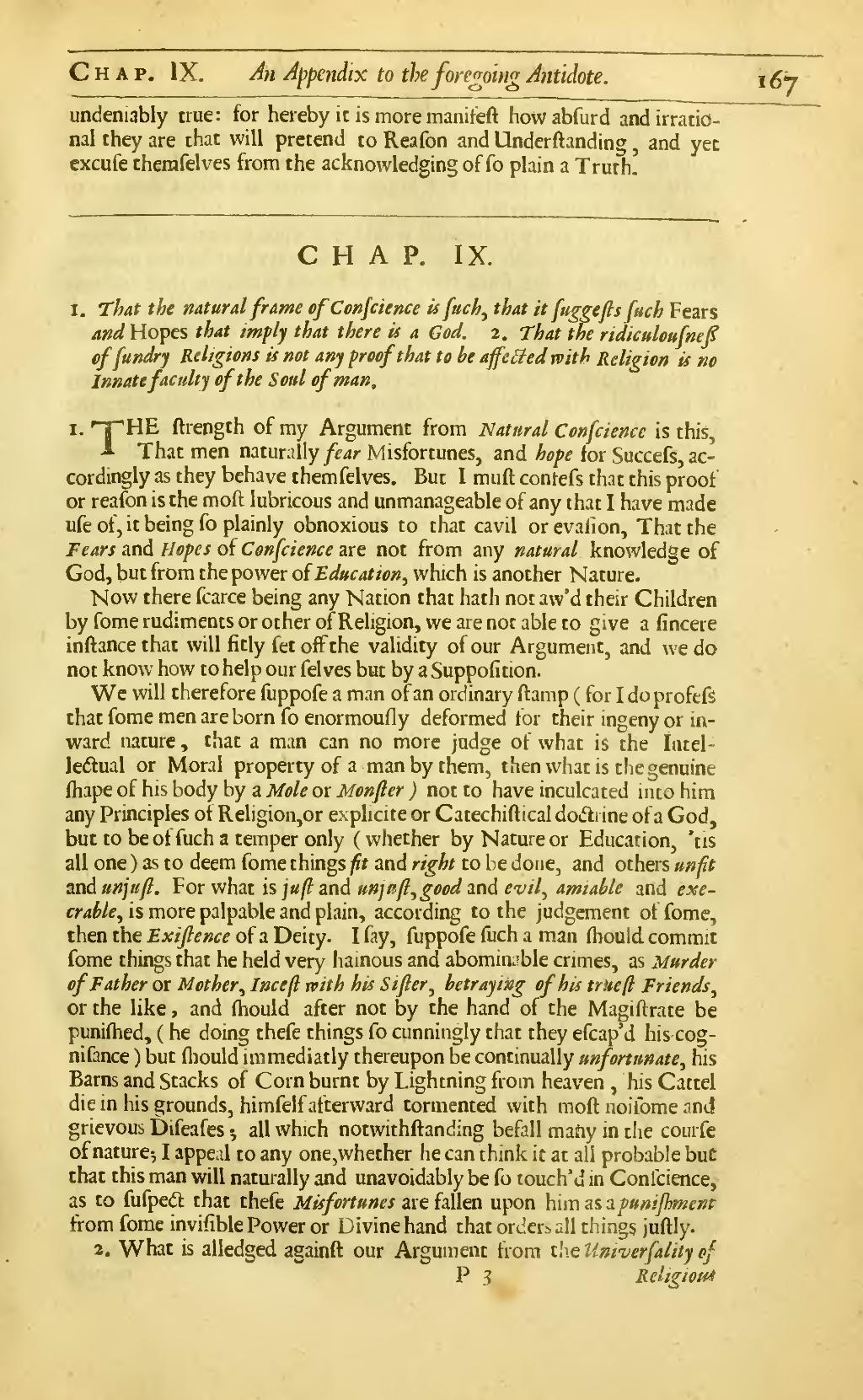undeniably true: for hereby it is more manifest how absurd and irrational they are that will pretend to reason and Understanding, and yet excuse themselves from the acknowledging of so plain a Truth.
Chap. IX.
1. That the natural frame of Conscience is such, that it suggests such Fears and Hopes that imply that there is a God. 2. That the ridiculousness off sundry Religions is not any proof that to be affected with Religion is no Innate faculty of the Soul of man.
1. The strength of my Argument from Natural Conscience is this, That men naturally fear Misfortunes, and hope for Success, accordingly as they behave themselves. But I must confess that this proof or reason is the most lubricous and unmanageable of any that I have made use of, it being so plainly obnoxious to that cavil or evasion, That the Fears and Hopes of Conscience are not from any natural knowledge of God, but from the power of Education, which is another Nature.
Now there scarce being any Nation that hath not aw'd their Children by some rudiments or other of Religion, we are not able to give a sincere instance that will fitly set off the validity of our Argument, and we do not know how to help our selves but by a Supposition.
We will therefore suppose a man of an ordinary stamp (for I do profess that some men are born so enormously deformed for their ingeny or inward nature, that a man can no more judge of what is the Intellectual or Moral property of a man by them, then what is the genuine shape of his body by a Mole or Monster) not to have inculcated into him any Principles of Religion,or explicite or Catechistical doctrine of a God, but to be of such a temper only (whether by Nature or Education, 'tis all one) as to deem some things fit and right to be done, and others unfit and unjust. For what is just and unjust, good and evil, amiable and execrable, is more palpable and plain, according to the judgement of some, then the Existence of a Deity. I say, suppose such a man should commit some things that he held very hainous and abominable crimes, as Murder of Father or Mother, Incest with his Sister, betraying of his truest Friends, or the like, and should after not by the hand of the Magistrate be punished, (he doing these things so cunningly that they escap'd his cognisance) but should immediatly thereupon be continually unfortunate, his Barns and Stacks of Corn burnt by Lightning from heaven, his Cattel die in his grounds, himself afterward tormented with most noisome and grievous Diseases; all which notwithstanding befall many in the course of nature; I appeal to any one, whether he can think it at all probable but that this man will naturally and unavoidably be so touch'd in Conscience, as to suspect that these Misfortunes are fallen upon him as a punishment from some invisible Power or Divine hand that orders all things justly.
2. What is alledged against our Argument from the Universality of

